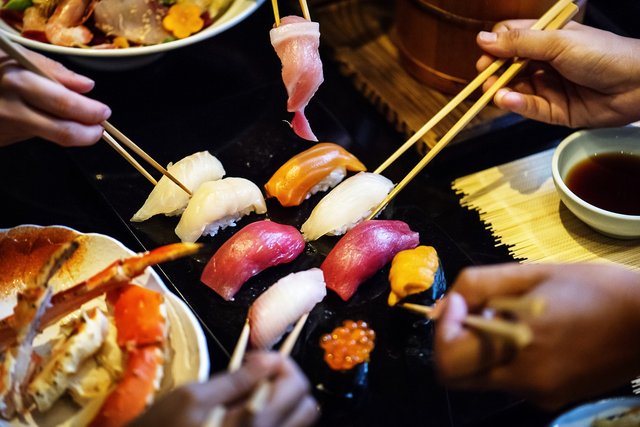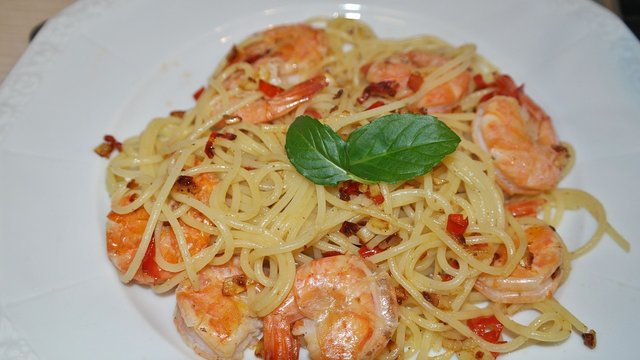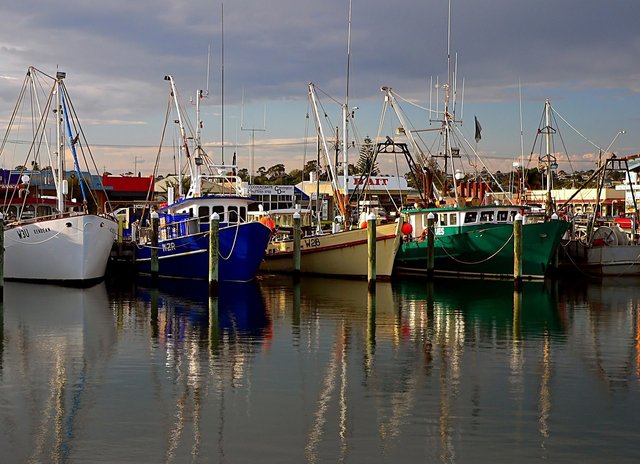Fish Fraud On The Rise: Seafood Samples Around The Country Found To Be Mislabeled

The U.S. fish market is one of the largest in the world.
Some reports suggest that it's more than 80 percent or more of the consumed fish in the U.S. that gets imported. The most popular seafood choices? Shrimp, tuna, and salmon.
Americans might love eating fish, but do they really know what they're getting?

Previous studies have found that fish fraud is rampant with both retailers and restaurants around the country.

One previous study by Oceana that was conducted several years ago, found that roughly 33 percent of the seafood samples coming from American restaurants were being mislabeled.
A news investigation that was looking at seafood samples from around Atlanta, had found that more than a third of the restaurants that they tested had mislabeled their seafood. They also estimated that as much as 40 percent of the seafood that comes into the country is likely mislabeled. And it's not just Atlanta, it's restaurants and retailers nationwide.
In samples that came from the San Francisco Bay Area, 11 out of the 16 samples had been mislabeled.
It's been suggested that snapper might be one of the most frequently mislabeled seafood products on the market.

One solution for the fish market has been the Sea to Table seafood supplier that's offered delivery of quality seafood products around the country. They look to provide trusted seafood products that are wild, domestic, have no hormones, no antibiotics, no GMOs, and are traceable. They've been having a lot of success with their home delivery service model, however they too have been the target of accusations that even they've mislabeled their fish.
U.S. lawmakers recently asked the NOAA to investigate them and where they are getting their fish from; after an AP investigation claimed that they were mislabeling their products.
Another alternative that's sprung up for those looking to get fish from perhaps more trustworthy sources is the Fulton Fish Market site. (FultonFishMarket.com) They offer an extensive assortment of seafood products and they deliver around the country. This startup has been described as 'the Amazon of fish', and their market platform provides very detailed information to consumers about the seafood product that they're buying such as the catch method that was used, where it comes from specifically, and more.
Ideally, you should be able to order fresh fish straight to your door within 24 hours. They've described their goal as being focused on delivering reasonably sourced seafood to those who are looking for it. They've described their business as one that's seeking to provide fish that has been caught with methods that minimize the environmental impact, on the regions which the fish is harvested from.
The more information that the consumer can obtain about where their food is coming from and what's going into the growing process etc, the more informed a decision they can make for themselves and their families.
Pics:
Pixabay
Giphy
pixabay
Sources:
http://www.iflscience.com/environment/at-least-onequarter-of-the-fish-you-buy-is-a-lie/
https://www.independent.co.uk/life-style/food-and-drink/china-japan-us-top-list-of-world-seafood-consumers-study-2087368.html
http://www.alaskafishradio.com/us-millennials-eating-seafood-ever-aim-healthier-natural-products/
https://www.forbes.com/sites/larryolmsted/2017/05/26/no-more-fake-fish-now-you-can-get-real-wild-caught-seafood-straight-to-your-kitchen/
http://nationalpost.com/life/food/fake-fish-study-finds-nearly-half-of-sushi-served-at-restaurants-is-mislabelled
https://www.worldatlas.com/articles/most-popular-seafood-products-in-the-united-states.html
https://www.theatlantic.com/business/archive/2015/03/bait-and-switch/388126/
https://www.ajc.com/entertainment/dining/bait-and-switch-are-restaurants-mislabeling-fish/EUlx2E66ySFUqhVhqiTnjJ/
http://sanfrancisco.cbslocal.com/2017/04/27/testing-shows-many-bay-area-restaurants-mislabeling-fish/
https://oceana.org/sites/default/files/National_Seafood_Fraud_Testing_Results_Highlights_FINAL.pdf
https://www.morningstar.com/news/pr-news-wire/PRNews_20180321NY44581/fultonfishmarketcom-fresh-seafood-from-sea-to-shining-sea.html
https://www.fastcompany.com/40416063/the-amazon-of-fish-wants-to-get-americans-eating-more-seafood
https://www.eater.com/2018/6/14/17460682/sea-to-table-mislabeling-sustainable-seafood-associated-press-report
This has been a problem for a long time but has gotten worse with the rise of cost since more places can't raise their prices any higher and hit their target market so instead they either lower portion size, which is very apparent in many establishments, or find a cheaper options to pass off as the menu item. Sometimes it is not even the establishments fault they are being tricked also since they get into these name games where a fish is technically the same species as the one being sold and is passed off as such.
I totally believe this. I saw this so much in Sint Martin that stuff was utter nonse. So called 'organic' food in restaurants bought by the same suppliers as that we did.
King crab on the menu, but the cheaper crab/crap version in reality. And sometimes something totally different on your plate without any mention of it. We are all being conned big time
Excelnte information, very interesting. The food that we buy and eat is manipulated by many hands before reaching the final consumer. The general public does not really know the regulations and standards that exist for food in their countries, so we only choose by consistency or by what the food labels say without knowing that we are being deceived.
Thats really shocking and sad in the same time. I think in the most countries we are dealing with this problem :(
This is quite worrisome but not unexpected. These days, any brand of fish I see being sold for low prices praises itself for being high quality and from sustainable sources.
The only surprising thing here is that ridiculously high number, even for america.
I think that is something that happens all over the world, I live in Venezuela, in the east of the country. It is a fishing area, where you get fresh fish from the sea to the kitchen, but in restaurants they dress up fish to fool people.
and right now with the bad economic situation more people join the cheating and the fraud.
A great greeting to you.
Spot a fake boiled egg:
But it’s top quality plastic enriched with the real chicken faeces! ;)))
this is really interesting and worrying that this happening in many countries also happens is sad and regrettable
And so much that I like tuna
wuao must be aware is shocking that this thing is happening is worrying, and so rich is to eat fish and sushi so much that I like. thanks friend @doitvoluntarily for such important information <3
And now I don't want to eat sushi ever again lol